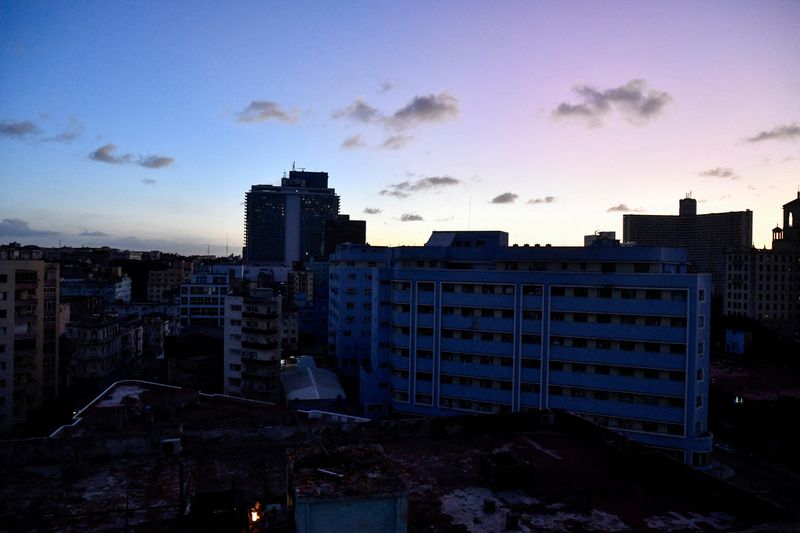
By Nelson Acosta
HAVANA (Reuters) – Cuba this week asked state and private businesses to generate more of their own electricity from renewable resources and to limit their use of air conditioning, among other conservation measures, as the communist-run government navigates its worst energy crisis in decades.
The new regulations, summarized in a 16-page decree published on Tuesday, give top energy consumers in both the public and private sector three years to install renewable energy sources capable of producing at least 50% of the electricity they consume during daylight hours.
If an office building or factory can’t accommodate solar panels, businesses will instead be required to contract with the government for a portion of its installed renewable energy capacity.
The decree also establishes an array of new conservation measures, including a rule prohibiting state and private businesses on the Caribbean island from using “climate control units in non-technological offices, at temperatures below 24C (75.2F).”
The increasingly restrictive measures come as Cuba’s electrical grid teeters on the edge of collapse.
Multiple, island-wide blackouts in October and November left millions of people in the dark for days. Rolling blackouts continue nationwide as Cuba struggles to source the fuel and spare parts it needs to generate enough electricity to meet demand.
The government blames U.S. sanctions and a festering economic crisis for the increasingly tense situation.
The decree also establishes protocols for a contingency plan in emergency situations in which it is “necessary to affect electrical service in a planned and sustained manner for more than 72 hours.”

In such cases, businesses would be required to disconnect refrigerators, industrial ovens and irrigation pumps during peak demand hours.
The decree dedicates several pages to describing enforcement of the new rules, including shutting off electricity to the businesses that fail to meet the new standards, as well as fines of up to 15,000 pesos ($45.00) or more, depending on the infraction.
This post is originally published on INVESTING.



